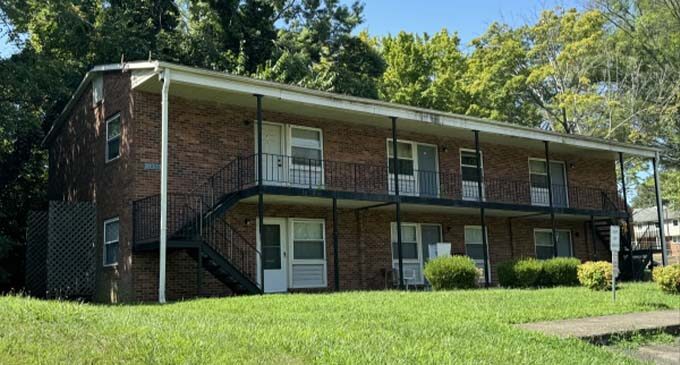The state of housing in Winston–Salem

Across the United States, the housing crisis continues to grow, leaving millions of Americans without stable and affordable homes. According to the U.S. Department of Housing and Urban Development (HUD) 2024 Annual Homelessness Assessment Report: Part 1, more than 770,000 people experienced homelessness on a single night in January 2024 – a staggering 18% increase from the previous year. While progress has been made in some areas, such as an 8% decrease in homelessness among veterans, the broader issue remains a pressing challenge for the nation.
In North Carolina, the crisis is equally dire. According to the N.C. Housing Coalition, 28% of households – about 1,118,220 residents – are cost-burdened, spending more than 30% of their income on housing. These figures highlight a significant barrier to stability and economic mobility for a large portion of the state’s population.
In Winston-Salem, the crisis mirrors these broader trends but carries unique local implications. Rising home prices, limited affordable housing options, and systemic barriers leave many residents struggling to find or retain housing. For individuals like Micheal, a local man who experienced homelessness, the housing crisis is not just statistics – it is a daily battle.
Micheal, who has wrestled with behavioral health issues, once held a coveted housing voucher meant to help individuals secure stable homes. However, his path to stability took a devastating turn when his housing development decided to stop accepting vouchers, forcing him to search for a new place to live. Despite his voucher, Micheal found it nearly impossible to locate housing that would accept his voucher that was within his price range. Without a home, Micheal’s mental health deteriorated, and he found himself in crisis. Acts of desperation, such as public urination, ultimately led him to temporary housing at the Forsyth County Denton Center.
Micheal’s story reflects the harsh realities of housing instability and underscores the importance of accessible, affordable housing options. It also highlights a broader issue: even when programs like vouchers exist, systemic gaps – such as a lack of participating landlords and insufficient affordable units – render them ineffective for many.
City leaders and local organizations are working to address these challenges. The Winston-Salem City Council recently approved guidelines for its Affordable Housing Development Program, allocating $2 million to projects aimed at creating new housing opportunities. Additionally, initiatives like the Choice Neighborhood Initiative, supported by a $30 million HUD grant, are designed to transform distressed neighborhoods into thriving, mixed-income communities. Yet for individuals like Micheal, these efforts must translate into immediate, tangible changes.
Over the next five weeks, The Winston-Salem Chronicle will explore what is being done to address the affordable housing crisis in our city. This series, The State of Housing, will take a closer look at key development projects, innovative solutions, and the challenges that remain. Through a combination of data-driven reporting and personal stories, like Micheal’s, the series will highlight the efforts of local leaders, nonprofits, and developers working to create housing stability for all Winston-Salem residents.
Housing is more than a basic need – it is the foundation for opportunity, dignity, and hope. Join us as we uncover the state of housing in Winston-Salem and the path forward.









